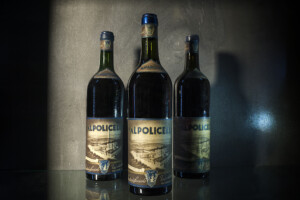No wine market, neither for Italy nor others, can replace the United States, where it is fundamental to continue to invest despite tariffs. Nonetheless, as many have said for years, diversifying target markets is strategic, and several producers, despite still very low absolute values, are now focusing on the Mercosur area. The EU is moving closer to ratifying the long-pending free trade agreement with Mercosur, which today received approval from the European Commission, specifically from the College of Commissioners marking a significant step forward ahead of the expected vote by the Council and European Parliament (awaiting, anyway, by the end of the year).
The news is welcomed by much of the EU wine sector, as explained by Ceev - the European Committee of Wine Companies (which includes Italy’s Unione Italiana Vini - Uiv and Federvini): “in a time of growing geopolitical and economic challenges, it is more important than ever for the EU to secure and diversify trade relations with reliable partners. These agreements are a necessary step forward for European wine exports”, comments President Marzia Varvaglione. Who adds: “we urge the European Parliament and Council to swiftly move forward with ratification so that wine companies and consumers on both sides can benefit from these historic agreements without delay”. The Eu wine sector, Ceev recalls, is the world’s leading exporter, with nearly 16 billion euros in exports in the last campaign. Latin American markets are still small in absolute terms seen that “EU wine exports to Brazil exceeded 200 million euros, while those towards Mexico reached a similar level (198 million euros). Both are dynamic markets with strong growth potential”, the Comité notes whose members “strongly support these trade agreements, which will significantly improve access to wine markets in Brazil and Mexico by eliminating tariffs, strengthening protection of Geographical Indications, simplifying import procedures, and creating more predictable and fair trading conditions. These agreements bring clear benefits and pose no risks to European wine producers. They create certainty for our sector,” Ceev still explains. Its Secretary General, Ignacio Sánchez Recarte, clarifies: “let’s be clear: Brazil and Mexico can’t replace the losses we’re facing in the U.S. market. However, they are dynamic wine markets where European wines are highly appreciated and where we see important growth opportunities. In a time of tariff uncertainty, the new agreement will eliminate Brazil’s 27% tariff on European wines, a serious obstacle to competitiveness and growth for our companies”.
“Opening to Mercosur is an important signal in favor of free trade, especially at a time when it seemed to have disappeared. These are appreciated trade agreements”, comments President of Unione Italiana Vini - Uiv Lamberto Frescobaldi, following “the adoption by the EU College of Commissioners of EU-Mercosur partnership agreement, which aims to promote free trade between EU member states and Argentina, Brazil, Uruguay, and Paraguay.
“The adoption of the Commission also includes Mexico (already under a 0% tariff regime) with a wine agreement aimed to simplify non-tariff rules and strengthen protection for geographical indications”, explains Uiv. “For the world of wine - Frescobaldi added - a partnership with a Latin population of 270 million people certainly represents a business opportunity. Today, with U.s. tariffs in place, the key word is diversification, as our commercial spectrum remains too concentrated on a few export markets, primarily the U.s”. According to Uiv Observatory, “Brazil, first buyer among the 4 South American countries, closed the first half of the year with a 5.5% year-on-year increase in orders of Italian wine, reaching 18.5 million euros with still/sparkling wines at +8.5%. European wine imports into Brazil reached 190 million euros in 2024, growing by +41% over the past 5 years. In a market dominated by Chilean producers (186 million euros) and Argentine wines (90 million euros), the leading supplier is Portugal (75 million euros), followed by France (50 million euros) and Italy with 40 million euros. These figures are expected to grow significantly with the potential gradual elimination of a 27% tariff”.
But, beyond wine, the Eu-Mercosur and Eu and Mexico agreements touch on many other aspects, including agriculture, which is raising concerns among industry organizations. “Our agreements with Mercosur and Mexico are major milestones for the EU’s economic future. We continue to diversify our trade, promote new partnerships, and create new business opportunities. EU companies and agri-food sector will immediately benefit from lower tariffs and costs contributing to economic growth and job creation. The EU is already the world’s largest trading bloc, and these agreements will further strengthen that position”, underlines Eu Commission President Ursula von der Leyen in an official note. Particularly, explains the Commission, “the agreement with Argentina, Brazil, Paraguay, and Uruguay (EU-Mercosur partnership) will create the world’s largest free trade area, covering a market of over 700 million consumers. EU businesses will benefit from first-mover advantage, enjoying lower tariffs in a region where most other countries face high tariffs and trade barriers. The agreement is expected to boost EU exports to Mercosur by up to 39% (49 billion euros) supporting over 440,000 jobs across Europe. It will reduce Mercosur’s often prohibitive tariffs on EU exports, including key industrial products such as cars (currently 35%), machinery (14–20%), and pharmaceuticals (up to 14%)”. But, still according to the Commission, the agreement will create “new opportunities for food exports and strong protections for EU farmers. Eu agri-food exports to Mercosur are expected to grow by nearly 50%, as the agreement lowers high tariffs on key Eu products, especially wine and spirits (up to 35%), chocolate (20%), and olive oil (10%). The agreement will also support the growth of high-quality traditional EU agri-food exports and end unfair competition from Mercosur products that imitate authentic EU goods by protecting 344 EU Geographical Indications.” The agreement - still writes the Commission - provides full protection for all EU agricultural sensitivities. First, it limits preferential agri-food imports from Mercosur to a fraction of EU production (for example, 1.5% for beef and 1.3% for poultry). Secondly, it establishes strong safeguards to protect sensitive EU products from harmful import increases. The Commission proposes to complement the agreement with a legal act to make the bilateral safeguard chapter operative. This act, which must be adopted by the European Parliament and Council, aims to protect the EU’s most crucial and sensitive agricultural sectors, acknowledging farmers’ concerns. The Commission will address implementation with Mercosur countries to ensure smooth execution”. Still, explains the Commission, “accompanying initiatives will be pursued, including measures toward potential alignment of production standards on pesticides and animal welfare for imported products”, while confirming that “Eu sanitary and phytosanitary import requirements will remain unchanged.” In the end - still writes Brussels - “the proposal regarding Common Agricultural Policy (Cap) after 2027 includes a separate budget of at least 300 billion euros for income support, ensuring Eu farmers continue to receive strong and stable income. The Commission is also introducing a new unified safety network for crisis measures, with a total capacity of 6.3 billion euros effectively doubling the current agricultural reserve. This enhanced support will help safeguard our farmers in times of market disruption and growing geopolitical uncertainty”.
With Mexico, the Commission states that “the new agreement will further support economic growth and enhance the competitiveness of both parties. Mexico is one of the EU’s longest-standing trade partners and the second-largest trading partner in Latin America, with the original agreement dating back to 2000. The EU exports goods and services fr a value of over 70 billion euros to Mexico annually under the current trade agreement, supporting more than 630,000 jobs in the EU. Mexico is a net importer of food products, so the agreement will greatly benefit EU agricultural exporters. The updated EU-Mexico agreement will eliminate prohibitive tariffs still in place on Eu agri-food exports to Mexico, such as cheese, poultry, pork, pasta, apples, jams, chocolate, and wine. These tariffs, which currently reach up to 100% on some EU exports, will be removed, making EU agricultural products much more competitive in Mexico. Moreover, simplified procedures will make it faster and cheaper for agri-food exporters to sell their products in the Mexican market. The agreement also extends protection against imitation to 568 iconic traditional European food and drink products (Geographical Indications)”.
However, while the Commission praises the agreement, Italian agricultural organizations remain cautious. Confagricoltura warns that “many issues remain unresolved, especially in agriculture. During the ratification process, as the agreement is presented to the 27 Member States and the European Parliament, we hope there will be room for improvement, particularly for the most vulnerable sectors: beef, poultry, rice, maize, and sugar”. The organization adds that “although the deal may offer potential benefits for some sectors, it still penalizes key European and Italian productions in terms of competition and food safety”. “The necessity of a principle of reciprocity requiring Mercosur producers to meet the same environmental, health, and social standards as European farmers - highlight president Massimiliano Giansanti - is essential for our businesses and agri-food system, which can’t compete with foreign producers subject to less stringent rules. The sustainability of the Italian and European primary sector is the result of long-term commitments and investments that must not be undermined by trade agreements with countries that do not currently meet these standards. The guarantees announced by the Commission - adds Giansanti - do not seem sufficient to protect our sector and the excellence of our productions. We appreciate the efforts of Italian government to defend agricultural enterprises. We will work with our representatives in Brussels and with Copa to ensure that the European primary sector does not bear the cost of a deal that burdens a sector already hit hard by US tariffs and international geopolitical context. The concern remains strong: we will not stand idle in the face of decisions that harm agriculture”.
“The agreement with Mercosur must be tied to strict guarantees on the reciprocity of production standards and thorough controls on all agri-food products entering Europe, to avoid endangering consumer health and the future of agri-food supply chains”, comment, on the other hand, Coldiretti and Filiera Italia, according to which, “the prevision of a safeguard clause, despite being a step forward, is not sufficient to support agricultural and agri-food businesses against the potential fallout of the agreement, as it lacks automatic activation which would make it truly effective. Moreover, there can be no adequate compensation for the risk of devastating the European production fabric”. They also stress that the Commission’s general reassurances about complementary initiatives, including impact assessments on aligning production standards (for example, pesticides, animal welfare) for imported products must be properly embedded in the agreement itself, still explain the two organizations. “In addition to that, 100% of agri-food products entering Eu borders must be inspected to ensure food safety and compliance with the rules applied to our producers. In South American countries - recall Coldiretti and Filiera Italia - antibiotics and other substances are still widely used as growth promoters in livestock, along with pesticides banned for years in the EU. In the first nine months of 2025, 130 food safety alerts were triggered in EU countries due to imports from Mercosur, over a third of which involved meat, according to an analysis by Coldiretti basing on Rasff data. Exactly beef, poultry, rice, and sugar are the supply chains most at risk from the agreement”. Without the necessary guarantees, the deal will harm small and medium-sized Italian farms, as well as small South American producers, worsening an already significant agri-food trade deficit between Italy and Mercosur, still underlines Coldiretti, according to which, “in the first five months of 2025, food imports from Mercosur countries to Italy rose by 20%, with meat peaks of 35%. It is absolutely unacceptable to use funds from the Common Agricultural Policy’s crisis reserve to “cover” - conclude Coldiretti and Filiera Italia - the potential economic damage caused by the agreement to supply chains essentially using farmers’ own money, especially in the light of the unacceptable Cap cuts announced by the Commission”.
“The Eu-Mercosur agreement will only benefit Italian agriculture if the safeguard clauses announced today are truly rapid and transparent, protecting sensitive products (meat, sugar, and cereals) which could be threatened by predictable unfair competition from low-cost imports not compliant with EU production standards on animal welfare, environment, and safety” - says Cristiano Fini, president of Cia-Agricoltori Italiani, who declares, at the same time,“the strategic importance of this agreement to diversify trade for our agri-food system and create new opportunities at a delicate time for made in Italy exports, following Trump’s tariffs”. Also Cia also expresses “opposition to the use of the crisis reserve (6.3 billion) euros from Cap budget - already heavily reduced - to offset the negative impacts of the Mercosur deal. While the activation of safeguard clauses is seen as a step forward”, Cia insists that these measures must respond quickly to any crises that may arise. “The announcement of biannual monitoring of sensitive products is positive, provided that timely action can be taken in case of serious market disruptions”. But, the core issue for Cia remains the “principle of reciprocity in production standards adopted by Mercosur producers, which must be guaranteed through strict regulations to avoid jeopardizing our agricultural production and economy.”
“Once again, as with the Trump tariff deal, the agri-food sector is the most penalized in the Mercosur agreement, sacrificed as a bargaining chip to secure advantages for other sectors, such as car, chemicals, and pharmaceuticals. We can’t ignore the serious risks posed to our supply chains by opening up to imports from countries with significantly lower production standards than those adopted by European companies”, comments Raffaele Drei, president of Fedagripesca Confcooperative. “Despite being one of the most ambitious trade deals ever negotiated, and potentially opening new opportunities - all to be verified - for exports of wine, cheese, and Geographical Indication products, the free trade agreement is not without critical issues”, Drei explains. Benefits for some sectors appear to come at the expense of others: the agreement allows excessive access to the EU market for feed, poultry meat, cereals, sugar, and rice, “without any guarantee that these products meet the same standards as European ones”.
The greatest concerns for cooperatives focus on key sectors, starting with livestock. In the beef sector, Mercosur producers enjoy overwhelming competitive advantages due to lower labor costs and less regulated, cheaper farming and feeding systems. This results in products entering the EU market at prices up to 50% lower, creating unsustainable competition for European farmers. The poultry sector is also at risk, already fragile and highly competitive, and could be further destabilized by large new quotas of low-cost imports. The sugar sector will also suffer: the agreement allows 190,000 tonnes of duty-free sugar imports, corresponding to about 10% of total EU imports. These ultra-competitive prices will inevitably drive down internal prices, harming European beet growers.
All this, Drei continues, “creates an unsustainable competitive paradox, considering that European farmers and breeders are required to comply with the world’s strictest regulations on environmental sustainability, food safety, and animal welfare”. This is one of the most questionable aspects of the deal, according to Drei: “the clear contradiction with the Commission’s internal policies, which promotes the Green Deal and strategies for a greener, healthier, and more sustainable agricultural model, while simultaneously encouraging trade policies that facilitate the import of products often not aligned with these principles: it’s as if the Eu is rewarding, through a system of communicating vessels, the very production models it claims to reject and condemns”.
In front of these critical issues, “the proposal to establish a compensation fund for the most affected agricultural sectors appears insufficient, perhaps aimed merely at securing farmers’ approval”, Drei concludes.
Meanwhile, the Italian government, in a statement from Palazzo Chigi, announces that it “welcomes the inclusion of an additional safeguard package to protect European farmers”, adding that “those additional safeguards include, as actively requested by Italy in recent months, a rapid monitoring and intervention mechanism in case of price disruptions, even at the level of individual Member States, strengthened phytosanitary controls on incoming goods to ensure full compliance with Eu standards and regulations, and a commitment to provide adequate compensation for potentially affected agricultural supply chains. Ahead of the formal approval steps in Brussels - it is cleared - Italy will assess, also through consultation with relevant trade associations, the effectiveness of the proposed additional guarantees and the possibility to support or oppose the final approval of the EU-Mercosur agreement”.
Copyright © 2000/2026
Contatti: info@winenews.it
Seguici anche su Twitter: @WineNewsIt
Seguici anche su Facebook: @winenewsit
Questo articolo è tratto dall'archivio di WineNews - Tutti i diritti riservati - Copyright © 2000/2026























































































































































































